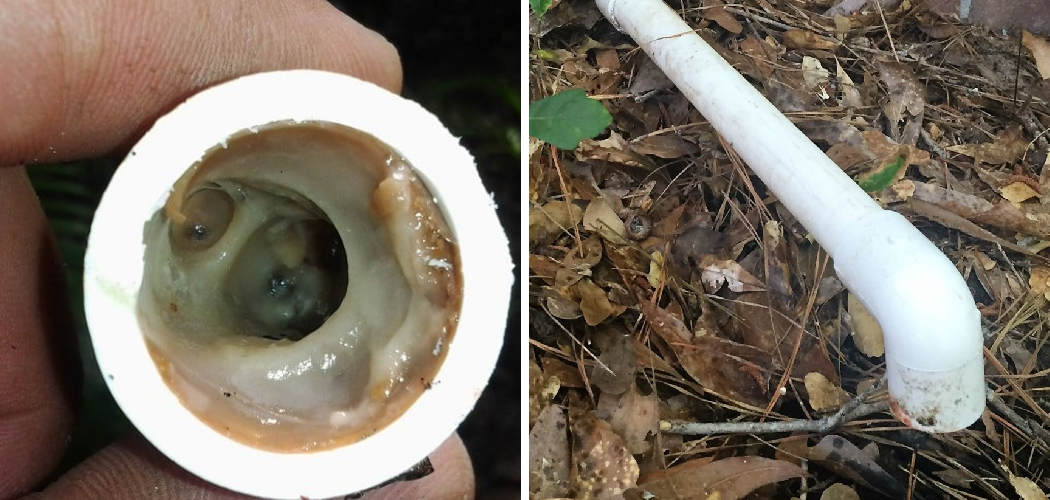Having a clogged AC drain can be annoying and uncomfortable. Not only is it unsightly, but the water buildup can damage your walls and furniture and lead to mold or other health concerns. The good news is that there are several things you can do to prevent an AC drain from becoming clogged in the first place, which will help avoid costly damages and repairs down the road.
In this blog post, we’ll take a look at some tips on how to keep ac drain from clogging to keep your AC drain flowing freely so that you don’t have to worry about finding yourself dealing with drainage problems in the future.
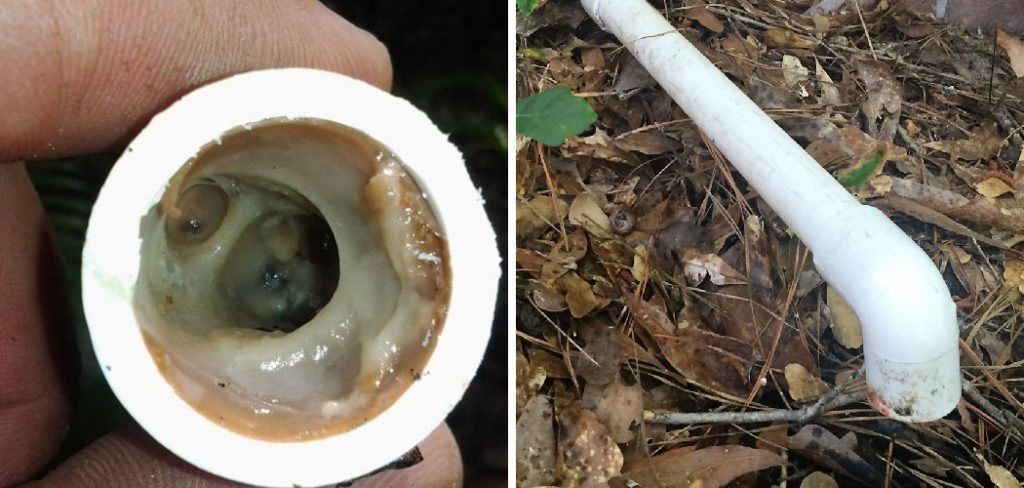
Clogs are a homeowner’s worst nightmare, especially when it comes to the air conditioning drain line. Not only is this an inconvenience and likely cause extensive damage if not corrected, but diagnosing and repairing clogged ac drains can be incredibly time-consuming and costly.
Fortunately, with some preventative steps there are ways you can avoid having to deal with any tireless troubleshooting due to clogs–and today we’re going to talk about how!
What Clogs AC Drain?
1. Improper Installation
Improper installation of the air conditioning system can often cause drainage problems. If the drain line is not installed correctly, it may be too close to other pipes or drains and become clogged with debris from those sources.
2. Debris Buildup
Another common cause of clogs in an AC drain line is a buildup of dust, dirt, and debris. When the air conditioner is in use, it sucks in dust particles from the air and these can accumulate over time in the drain line. Additionally, if there are plants or other objects near the unit they may also contribute to clogs.
3. Clogged Filters
A clogged filter can cause an AC system to have limited airflow. This in turn can cause the drain to become clogged because of increased pressure on the system, leading to water backing up and overflowing.
4. Standing Water
Standing water in an AC drain line is another culprit for clogs. If your AC system isn’t draining correctly, it’s important to check and see if there’s a blockage or if the water is simply pooling in the drain line.
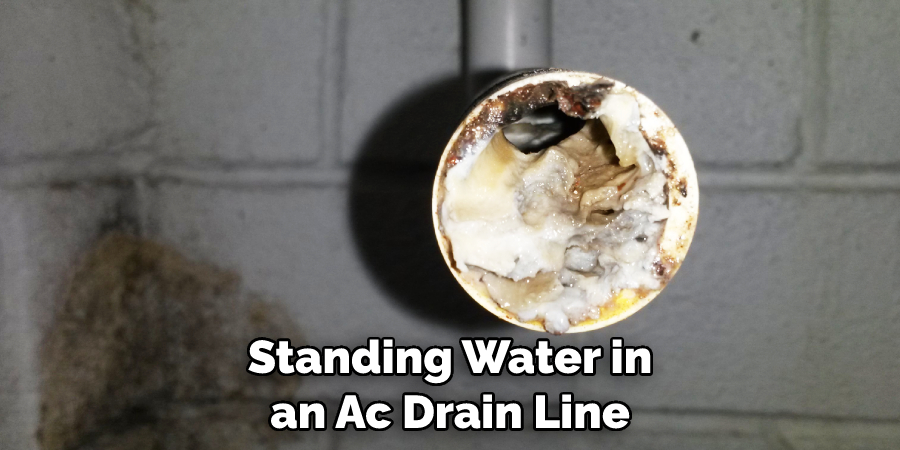
To keep your AC drain from clogging, it’s important to check for any issues with improper installation, debris buildup, clogged filters, and standing water. Regular maintenance of your air conditioning system can help ensure that your drain line doesn’t become clogged, and you can use a drain cleaning solution to help prevent clogs from occurring in the future.
Why Is It Important to Keep AC Drain From Clogging?
1. To Keep Ac Long Lasting
This is especially important if you want your AC unit to last for many years. Clogged drains can cause water damage and corrosion to the components of your AC system, leading to expensive repairs or even a complete replacement.
2. To Prevent Mildew and Mold Growth
A clogged AC drain line is an ideal environment for mildew and mold growth, which can cause respiratory problems and other health issues. Additionally, mold and mildew damage to your AC system can worsen any existing performance or efficiency issues you may have with the unit.
3. To Avoid Unpleasant Odors
A clogged AC drain line often leads to a musty smell in your home. This smell can be difficult to eliminate and will only get worse as the drain line continues to clog. So if you do not want any unpleasant odors then make sure you have taken steps to remove them.
These are just a few of the reasons why it is important to keep your AC drains from clogging. To prevent any issues with your system, it is best to have regular maintenance performed on your AC unit, including inspecting and cleaning the drain lines.
10 Tips On How to Keep AC Drain From Clogging
1. Keep the Coils Clean
Cleaning your AC’s condenser and evaporator coils regularly will help to ensure that the drain lines stay free of debris and clogs. This will also help to keep your AC running more efficiently and reduce strain on the system.
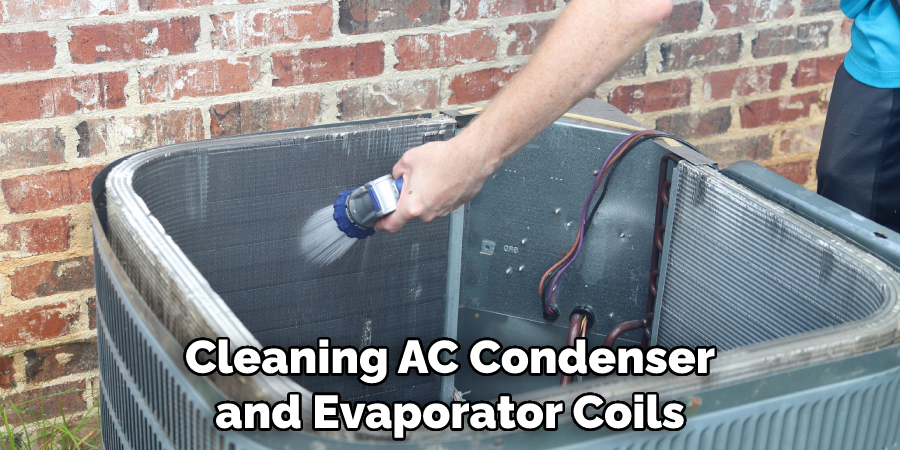
2. Check for Leaks
Checking for leaks in your air conditioner is an important step in keeping clogs away. If you notice any leaks, this could be a sign that water is collecting inside or outside the unit which can cause clogging in the drain lines.
3. Check the Drain Pan and Line
The drain pan and line should be checked for debris or clogs periodically to make sure they are clear of any blockages that could lead to a clogged drain. So make sure you are checking the drain pan and lines.
4. Keep the Area Around Your AC Free of Debris
Make sure to keep the area around your air conditioner free of debris and dirt. Leaves, twigs, and other types of debris can easily clog the drain lines if they make their way into the unit.
5. Clear Out the Vents Regularly
Cleaning out your AC’s vents regularly will help to ensure that any debris that get drawn in by the fan are not clogging up the drain lines. Make sure to check and clean the vents at least once a month.
6. Change Your Air Filter Regularly
Changing your air filter regularly is an important step in keeping the drain line clear of debris and clogs. A dirty air filter can cause blockages that lead to clogs, so make sure to change them at least every three months.
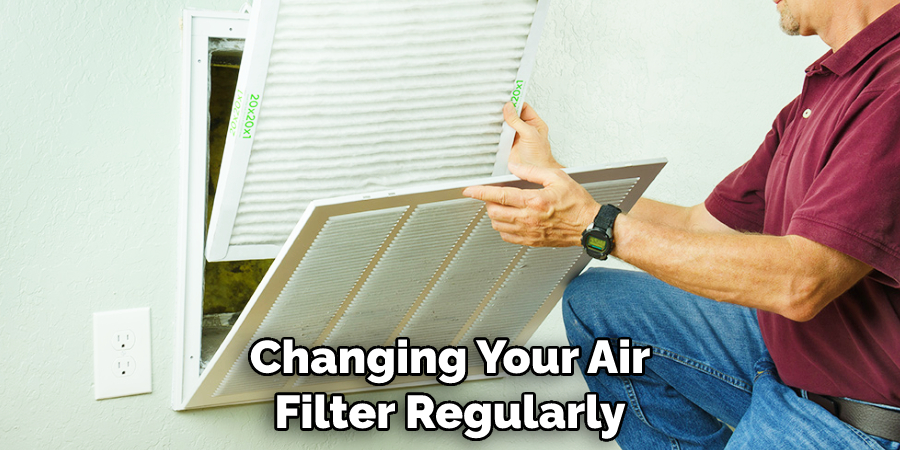
7. Flush Out the Drain Line
Flushing out the drain line of your AC unit periodically can help to ensure that any debris or clogs are cleared out of the line and that it’s easy for water to flow freely through it. Also, make sure to check the line for any signs of damage or leaks.
8. Check the Float Switch
The float switch in your AC unit is responsible for turning on and off when water levels get too high. If it isn’t working properly, this could lead to a clogged drain due to an overflow of water. Make sure to check it every now and then.
9. Clean the Drain Line Regularly
Cleaning out the drain line of your AC unit regularly will help to reduce the risk of clogs and debris buildup that could lead to a backed-up drain. Make sure to clean it out at least once a month.
10. Use Filters With a Higher Merv Rating
Another way to reduce the risk of clogs in your AC’s drain line is to use filters with a higher Merv rating. This will help to keep more debris out of the air and therefore reduce the chance of it getting into your drainage system and causing a blockage.
By following these tips, you can ensure that your AC unit stays free of clogs and runs efficiently all summer long. Don’t let a clogged drain ruin your cooling season! Make sure to keep up with regular maintenance and cleaning of your AC unit, so it’s always ready to go when you need it most. Good luck, and happy cooling!
Frequently Asked Questions
What Precautions Should I Take to Prevent My Air Conditioner Drain From Clogging?
The most important step you can take to keep your air conditioner’s drain from clogging is regular maintenance. Have a professional HVAC technician inspect and clean the drain line. This will help prevent sediment buildup and blockages in the pipes.

If possible, the technician should also inspect and clean the other components of your air conditioner such as the evaporator coil, condenser coil, and filter.
Are There Other Ways I Can Reduce My Risk of a Clogged Air Conditioner Drain?
You can reduce your risk of a clogged AC drain by avoiding overworking the system and regularly changing your air filter. Running the AC for more than 8 hours a day can cause sediment and debris to accumulate in the drain line, which can lead to a clog. Additionally, check your air filter every 1-3 months and replace it when necessary.
A dirty air filter will reduce the efficiency of your system and cause dirt and dust to build up in the drain line. Finally, if you live in an area with a lot of pollen or other airborne particles, consider investing in an air purifier to help reduce the amount of debris that can clog your AC drain line.
How Much Will It Cost to Have My Air Conditioner Drain Professionally Cleaned?
The cost to have your AC drain professionally cleaned will depend on the size of your system and the extent of the clog. Generally, it will cost anywhere from $50-$150 for a professional HVAC technician to inspect and clean the drain line. If there is a serious clog or blockage, the cost may be higher.
Additionally, if major components of the system need to be replaced due to corrosion or damage, it could add to the overall cost.
What Can I Do If My Air Conditioner Drain Is Clogged?
If your air conditioner’s drain is clogged, it’s important to act quickly. First, turn off the power to the unit and unplug it from any electrical outlets. Next, use a wet-dry vacuum to try and clear out any dirt or debris that is causing the blockage. If this doesn’t work, you may need to contact an HVAC technician for help.
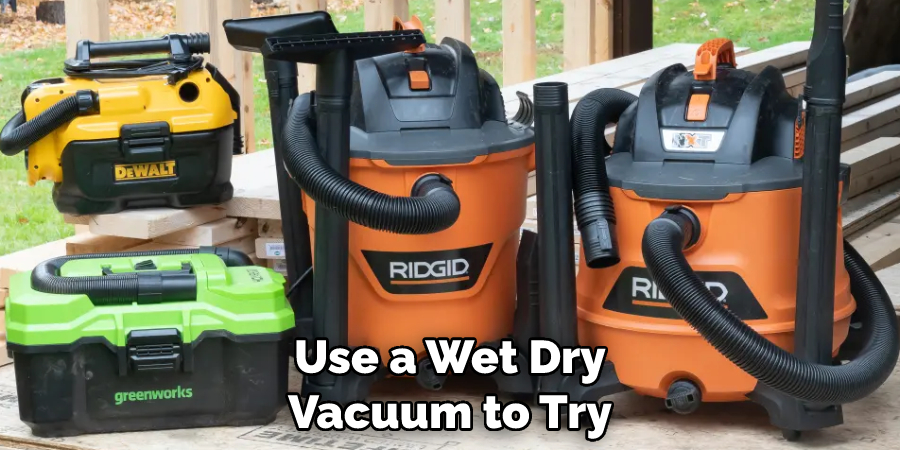
Conclusion
Maintaining your AC’s drain will not only save you time and money, but it can be a simple process as long as you remember to check on it periodically. The best way to ensure your AC’s long-term performance is to keep its drain clean and clear of any buildup or blockage.
You can use one of several methods outlined in this blog post; however, trapping the air flow with a blockage prevents the system’s water evaporator coil from draining properly and can over time cause extensive damage. It’s best to be proactive and practice regular maintenance.
By following these tips on how to keep ac drain from clogging, you’ll extend the life of your AC and keep it running smoothly. Additionally, if you run into any trouble understanding what’s wrong with your system, consider seeking help from an HVAC technician that is equipped with both knowledge and experience to fix any AC issues quickly and effectively.

